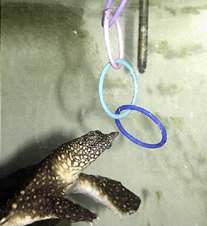Naïve enough to start and stubborn enough to carry on” said Ross Edgley as he celebrated finishing the 1,791-mile swim around the circumference of Britain. He burnt up, so they estimate, half a million calories over the 157 days it took him. And while very few will ever replicate that achievement, I think we could all take his mantra for ourselves in whatever we do. It certainly sounds good for the vet students coming to the end of the first term of their six-year course here at Cambridge.
Did they really know what they were letting themselves in for when they applied? They can’t have anticipated how complex biochemistry can be made when lectured by a Nobel prize-winner. Or how tough it can be to understand the intricacies of the voltage-gated sodium channel taught by someone who has made understanding it their life’s work. Don’t get me wrong – I really believe that such basic science teaching gives our students an unrivalled foundation for their clinical years, though at the time it seems taxing in the extreme to many of them.
The great thing about doing a degree myself, in my spare time, is that I can understand again the stresses of being a student – something it is easy as a lecturer to forget. Sitting in a long seminar and letting your mind drift for a moment, I now remember how easy it is to lose the track of what the speaker was saying. Getting back on track is next to impossible.
“I like your writing style,” my supervisor said on reading my essay, “but you really haven’t answered the question, have you?” And I realise the knot in the pit of the stomach that must come when I myself criticise a piece of work which one of my students has until that point felt proud to have produced. Perhaps that is why they say that the best teachers are still students themselves. Or maybe it’s that only the eternal student grasps how determined one needs to be to keep going.
As I come to the point where I should be two thirds of the way through my education doctorate, it feels in a way as though I’ve only just started, given the amount of hard data I have to show for three years’ work. The end seems a long way off. “Naïve enough to start and stubborn enough to carry on”, I have to keep telling myself!
But it’s just the same for a complicated tumour removal or a limb fracture with multiple bone fragments, isn’t it? The only difference is that once you’ve made that first incision, you have no choice – you just have to keep going. Halfway through, when removing the tumour has taken much longer than anticipated or the fracture needs a completely different approach, we don’t just throw in the towel. We can’t. And when the last suture is placed, and we wake the dog up to return it to its owners, we should congratulate ourselves and consider it another brick in the wall of resilience.
The trouble is that so many of us seem to focus on the surgical dilemma that made us late for starting evening surgery, rather than giving ourselves a pat on the back for getting through it at all. The same can be said for a student that intermits, taking an extra year to complete the course for whatever reason. Somehow, they seem to consider themselves a failure for needing a bit of time off, but I tell them they are amazing for keeping on going. And so are you if every day seems a struggle. Give yourself a pat on the back from me!










